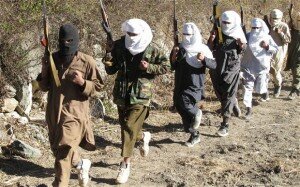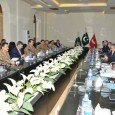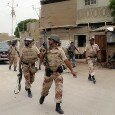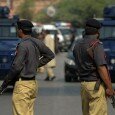By Muhammad Amir Rana –
The influence of the IS on militant groups in Pakistan and Afghanistan is a huge challenge for al-Qaeda and Afghan Taliban. The groups that were not happy with al-Qaeda’s operational strategies are more attracted to the IS
Pakistan’s militant landscape is diversifying in discourse and outreach, making it difficult to assess the potential threat it could pose.
Populated with militant groups formed during the Afghan-Soviet war and terrorist cells that have appeared in recent years, a diverse militant landscape has emerged in the country. Many of these militant groups’ ideological and political aspirations overlap but each group tries to achieve those aspirations in a distinct and exclusive way, which keeps them on different courses.
Most of the militant groups in Pakistan operate underground, and the ordinary Pakistani has little information about them. However, some of these groups are quite visible on the surface but only through their welfare and charity wings, which create ambiguity in the minds of the people about these groups’ militant credentials.
The recent developments indicate these wide-ranging groups are passing through a transformation. Though these changes reflect contrary trends, but indicate a desire for ideological and operational adjustments in their strategic approaches. Asmatullah Muawiya, leader of a major Punjabi Taliban faction who recently renounced terrorism, but on other hand a TTP faction formed Jamaat-ul-Iharar, few of their commanders have announced their oath of allegiance to Abu Bakar al-Baghdadi, and al-Qaeda has appointed a Pakistani militant, Asim Omer as the head of its South Asian chapter.
Asmatullah Muawiya has remained part of Kashmir based militant groups, and his last affiliation was with banned Jaish-e-Muhammad.
Though most of the Kashmir based groups were not involved in terrorist activities in Pakistan, their breakaway factions and individuals had empowered al-Qaeda and tribal militants, including Muawiya. But at the moment, many of these groups are trying to become part of far-right politics in Pakistan. For that purpose, they are gradually detaching themselves from anti-state militant groups. They were trying to bring back their old fellows in their folds.
The militant commanders like Muawiya were not happy with their leadership over administrative, operational and strategic issues. At the same time, they were not satisfied with the achievements of their elders on Islamization front.
Muawiya had written letters to the media before the 2013 general elections and raised questions about the democratic system, which, he felt, was not providing relief to the common man. One of the reasons behind his renunciation of violence in Pakistan is the ongoing debate among religious scholars on issues like violent struggles, the Constitution, democracy and Islam, which has created an intellectual challenge for the militants.
These debates do not have any major impact on militants inclined towards Salafist Islam or under influence of international radical and terrorist organizations including al-Qaeda. These groups feel more attraction in new ideological framework provided by the Islamic State (IS).
The IS factor has provided new life to the Pakistani militants. The TTP is undergoing an extensive transformation, but it has the potential to re-emerge as a stronger ideological militant movement. The influence of the IS on militant groups in Pakistan and Afghanistan is a huge challenge for al-Qaeda and Afghan Taliban. The groups that were not happy with al-Qaeda’s operational strategies are more attracted to the IS. It was the main reason behind the establishment of al-Qaeda in South Asia. Growing realisation that operating through affiliates may not work in the future forced al-Qaeda to set up a separate branch in South Asia, which may help the terrorist group recruit people directly instead of relying on local associates.
The IS factor will have an impact on the Afghan Taliban too. The IS militants reject nationalism and consider the Afghan Taliban as part of the religious-nationalist movement. Those among the Afghan Taliban who have weak nationalist tendencies and are more inclined towards a ‘purified’ ideological goal can initiate such debate among their ranks.
As militant groups prepare to enter into another phase of ideologically and operationally transformed jihadi discourse, the implications for regional security and Pakistan’s internal security are severe. The Islamic State inspiration has broadened the political and ideological vision of the militants, which can cause changes in their tactical and operational perspectives.
The North Waziristan military offensive has forced the militants to assemble in Nuristan and Kunar regions. The al-Qaeda and TTP hardliner groups can use the territory as a base camp for their future terror campaigns. They can pose a threat for economic corridor between Pakistan and China as new bases are not far away from the proposed route of the economic corridor.
The writer is a security analyst and heads Pakistan Institute of Peace Studies (PIPS)































































































